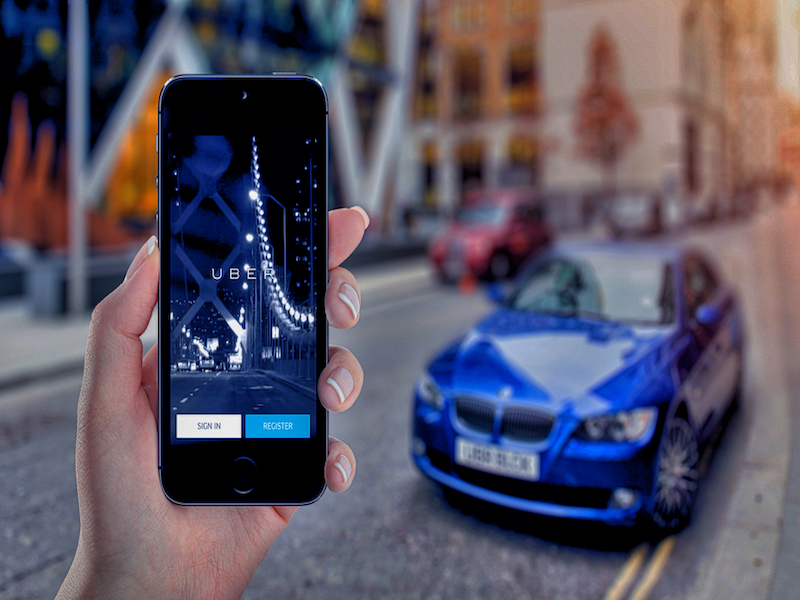Business
Uber Going Public

The war between the new controversial Uber Company and its driver employees has now escalated as the cost in battles has now reached over a staggering $100 million. One of the consequences, from upsetting their drivers, over working rules, has been the introduction of ‘IPO’ and how it's starting to change the whole structure of this new business model.
What is IPO?
An IPO exists when a private company decides to sell shares to the public, either through equity or debt. A business that does this for the first time is known as an IPO.
The benefits for a company to go IPO:
- Higher rates for issuing debts.
- Accessible stock ownership plans for employees, which allures top clients.
- As stock can now be offered within deals, acquisitions and mergers come in easier.
How has IPO helped to change Uber’s rules?
As the public have ownership through public shares, this means the business has to offer a lot of transparency and be under public scrutiny with their day to day running.
Moreso, Uber is a low budget business model, which played a reason why drivers were not getting a fair deal when it comes to ‘employee’ status.
However, the war on driver’s rights made many successful gains in their favor, as the settlement has now managed a much fairer agreement so far, with the following benefits:
- Better communications for pay rates.
- Organization of driver’s union named as ‘the drivers association’.
- Drivers protection during customer disputes and the refusal of services on grounds of racial or sexual abuse.
- Drivers can accept tips.
Employees remained as self-contractors, but the debate on whether they are employees or not is still on the cue.
Can it get any better for Uber drivers?
Uber is yet to make an official public offering, however, the firm has raised over $10 billion from debt and equity, which is consequently making investors very impatient; as time goes on the increasing pressure for Uber.
IPO hasn’t just changed Uber, but also the whole 1099 economy which has been in boom over the last few years.
What is the 1099 economy?
The 1099 economy was influenced by a tax form, created by the IRS to allow workers to declare revenue income from sources other than wages, tips or salaries.
How is this helpful?
The 1099 forms are designed for taxpayers to list their profit as a list of annual transactions; this can make it a lot simpler for filling in tax returns, and means it gives the taxpayer a lot more flexibility for alternative employment – having numerous clients and not being officially employed by a company on the books.
This created a lot more categories of employment status and the change of dynamics between the employee and employer relationship.
For example, many work under these forms:
- Perma-Temps.
- Micro-Entrepreneurs.
- Gig-preneurs.
- Solo-preneurs.
- Contractors.
- Freelancers.
- Temps.
- Contingent labor.
- Perma-lancers.
However, these new types of working conditions does come at some cost:
- Work is not permanent or always guaranteed, you only work for when you are needed to by the firm.
- Being self-employed means fewer employment rights than you would get for being a formal employee.
- You can be dismissed, or services no longer required, without any tribunal rights.
- No set hours or income.
The restriction of worker rights isn’t necessarily all bad for everyone, as there’s many who do prefer this way of working – you are not tied under employment regulations, you have more control of your hours (flexihours) and you get to work across a different variety of environments.
[buffet_recommended]
In Summary…
A mixture of technology, the last recession, and the government's help in giving employees more flexibility, has definitely contributed to the quick changes in employment across societies.
It has created a lot more employment opportunities, especially if the company is only spending out on labor here and there where it’s needed, rather than having to pay a full committed workers salary.
Uber has been a prime example of how the 1099 market has changed, especially through monopolizing cheap travel with ease for just simply having their app. Smartphone technology has played a significant role, where it comes down to the convenience of getting what you want at what price, in only just a few touches of a button.
Now that Uber is slowly getting more into the hands of the public – the drivers should start to get a fairer deal, and this new revolutionary market could see a very prosperous future; it should be very interesting to see how this paves out as internet technology is rapidly progressing.









